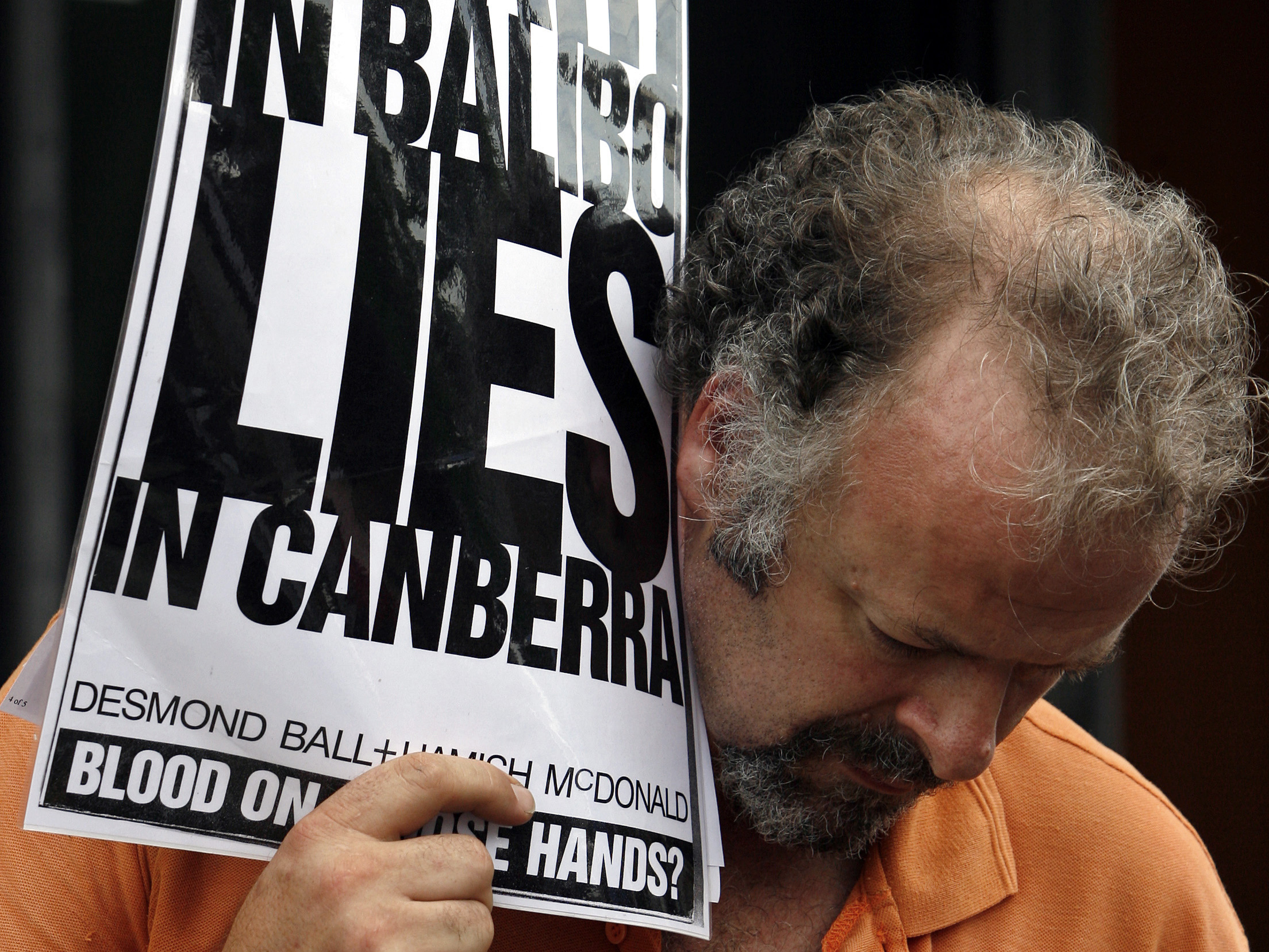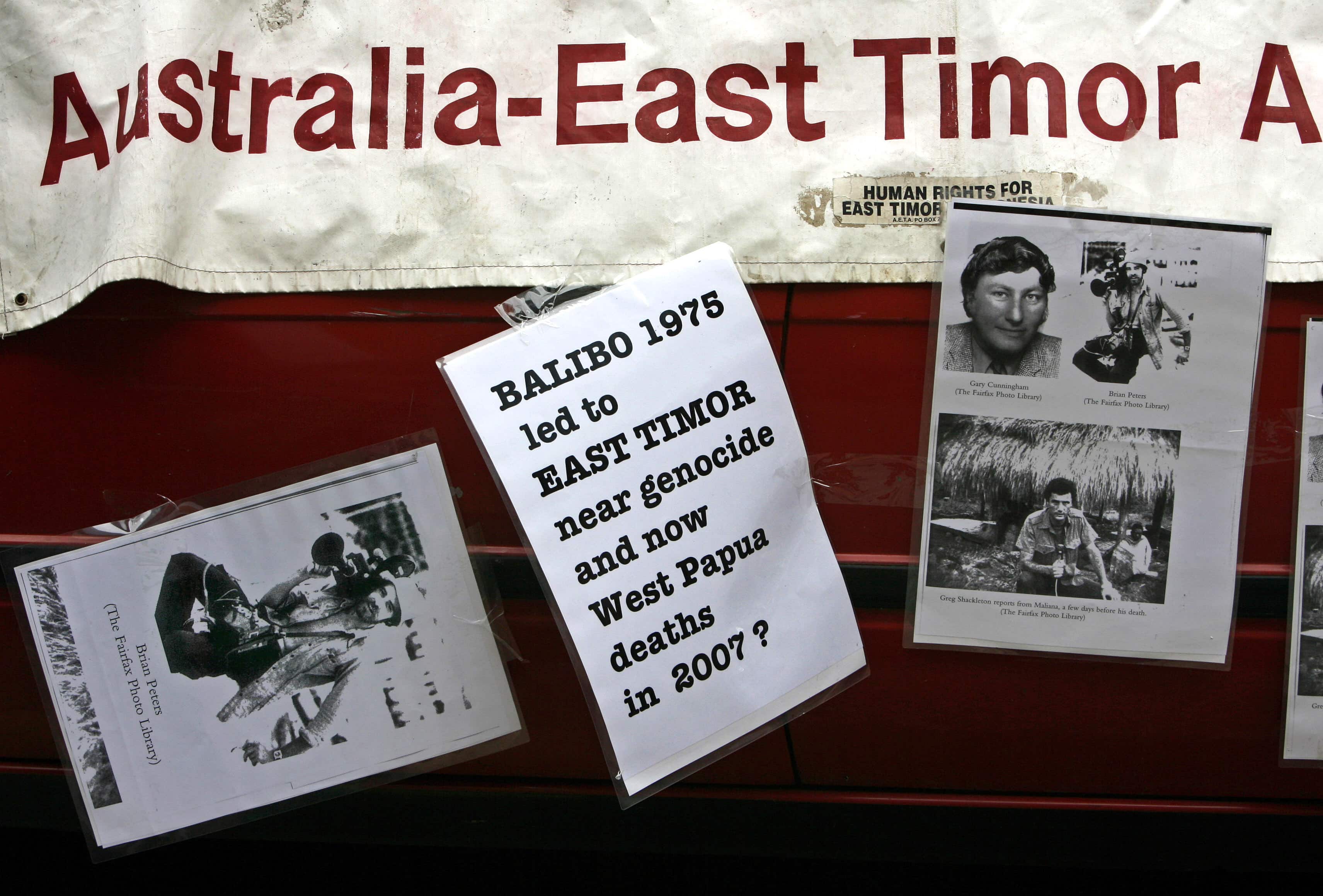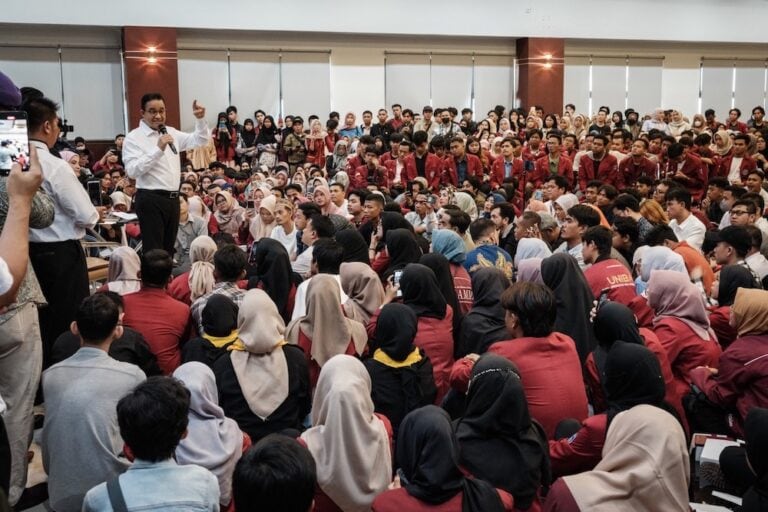The IFJ and MEAA commemorated the 40th anniversary of the killing of the Balibo Five, with the establishment of a scholarship to develop journalism skills in East Timor. The five young Australian journalists were killed in East Timor by Indonesian military troops after witnessing an incursion by Indonesian soldiers.
This statement was originally published on ifj.org on 16 October 2015.
The International Federation of Journalists (IFJ) and its affiliate the Media, Entertainment & Arts Alliance (MEAA) today, commemorate the 40th anniversary of the killing of the Balibo Five in East Timor, with the establishment of a scholarship to develop journalism skills in East Timor. The IFJ supports the establishment of the scholarship to support the strengthening of East Timor’s media.
On October 16, 1975, five young journalists working for Australia’s Seven and Nine networks, reporter Greg Shackleton, camera operator Gary Cunningham, sound recordist Tony Stewart (all from Seven), reporter Malcolm Rennie and camera operator Brian Peters (both from Nine), were brutally murdered in the town of Balibo, just 10 kilometers from the Indonesia-East Timor border. The Balibo Five as they have come to be collectively known as were killed by Indonesian military troops after witnessing an incursion by Indonesian soldiers.
In 2009, the AFP announced that it would conduct a war crimes investigation into the deaths of the Balibo Five. This came after the NSW Deputy Coroner Dorelle Pinch’s 2007 inquest into Brian Peter’s death had found that Peter, in company with the other slain journalists, had “died at Balibo in Timor Leste on 16 October 1975 from wounds sustained when he was shot and/or stabbed deliberately, and not in the heat of battle, by members of the Indonesian Special Forces, including Christoforus da Silva and Captain Yunus Yosfiah on the orders of Captain Yosfiah, to prevent him from revealing that Indonesian Special Forces had participated in the attack on Balibo. There is strong circumstantial evidence that those orders emanated from the Head of the Indonesian Special Forces, Major-General Benny Murdani.” To date, no one has been held responsible for the murders.
Today, MEAA will establish the new scholarship in the memory of the Balibo Five and also Roger East, an Australian freelance journalist working for AAP and Reuters who was executed in Dili on 8 December 1975. To be known as the ‘Balibo Five-Roger East Scholarship’, it will sponsor travel, study expenses and living costs for East Timorese journalists to develop skills and training in Australia. It is anticipated that their studies would be short courses at major Australian journalism schools, as well as potential short work placements in print or broadcast newsrooms. MEAA will provide seed funding for the scholarship and the IFJ will assist in identifying suitable recipients among journalists in East Timor.
MEAA CEO Paul Murphy said: “The five journalists were upholding their profession’s finest traditions in reporting to the rest of the world the threat of invasion of East Timor. We believe a practical program like this is the most appropriate way for our union to honour and commemorate the Balibo Five and Roger East. A little over a decade since East Timor became an independent sovereign state, press freedom is still fragile and there are few formal structures to develop journalism skills. By providing a scholarship for journalists from East Timor to study and spend time with experienced Australian journalists, we hope that we can help build a strong free press there.”
The IFJ said: “Today we commemorate the brutal killing of five young Australian journalists, who were simply in East Timor doing their jobs. The slow response by governments and authorities to investigate and bring those responsible to justice sends a dreadful message that no matter the scale of the tragedy, governments can find plenty of excuses to sit on their hands and do nothing. Those responsible have now gotten away with murder for 40 years.”
“We welcome the establishment of the ‘Balibo Five-Roger East Scholarship’ which will work to support the development and strengthening of East Timor’s media, and press freedom which remain fragile,” said the IFJ.

In this 8 May 2007 file photo, a protester holds a placard outside the Glebe Coroner’s Court in Sydney during the inquest into Brian Peters’ deathREUTERS/David Gray (AUSTRALIA)



